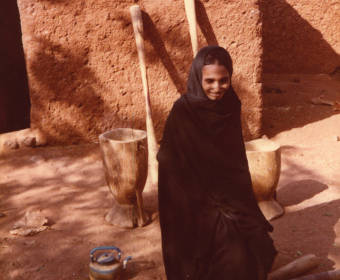
The evaluation of the experimental impact is a methodology that will determine the efficacy of the different public policies implication, which has its origin in the evaluation of policies designed to reduce poverty of the Massachusetts Institute of Technology - MIT in 2003. On the 7 and 8 November, the UV will put into practice this method to evaluate the public policies for the human development and cooperation through a workshop by the UNESCO Chair of Studies about Development.
The workshop will be taught by José Vila-Belda Montalt, an impact evaluation analyst of the University of Zurich, who applied this methodology during his work at Abdul Latif Jameel Poverty Action Lab (J-PAL).
The J-PAL is a network of researchers that, since 2003, works on the mission of poverty reduction through the evaluation of the experimental impact, what means a guarantee for efficient public policies on development cooperation.
Organized by the Department of Economic Analysis of the Faculty of Economics, the workshop at the UV pretends to “spread the evaluation methodology of the experimental impact among students of Master’s Degree in Development, Institutions and Economic Integration, as well as among professors linked to cooperation policies”, says Concepción Betrán, professor for Economic Analysis of the UV and coordinator of the workshop together with professors Yadira González de Lara and Antonio Cubel.
“This methodology is new in the field of cooperation and it develops an experiment in which two samples are shown: one of the people affected by public policies; and another one, called ‘control sample’, that meets the same conditions as the other one but the latter is not affected by these policies. This study allows us to establish which has been the impact of the policies being evaluated”, explains professor Concepción Betrán.
Thus, the purpose of knowing the evaluation method of the experimental impact is to “know how to improve public policies to fulfil its objectives in an effective way”, adds Betrán.
Thanks to this workshop, students will be able to firmly evaluate the impact of development policies and, at the same time, it will have a positive impact on public policies and human development programmes of the Valencian Community through the training of professionals in cooperation and development.
The course will be opened on Monday 7 at 9:00 hours, in an event that will be attended by the director of the UNESCO Chair about Development of the UV, José Miguel Soriano, and the director of the Master’s degree in Development, Institutions and Economic Integration of this university, Concepción Betrán.
This activity counts on the cooperation of the General Foundation of the Universitat de València, through its cooperation area; the Faculty of Economics; and the research group The Economic History Group (EH-Valencia) of the Department of Economic Analysis.
Detailed programme of the workshop
Last update: 4 de november de 2016 08:49.
News release


















